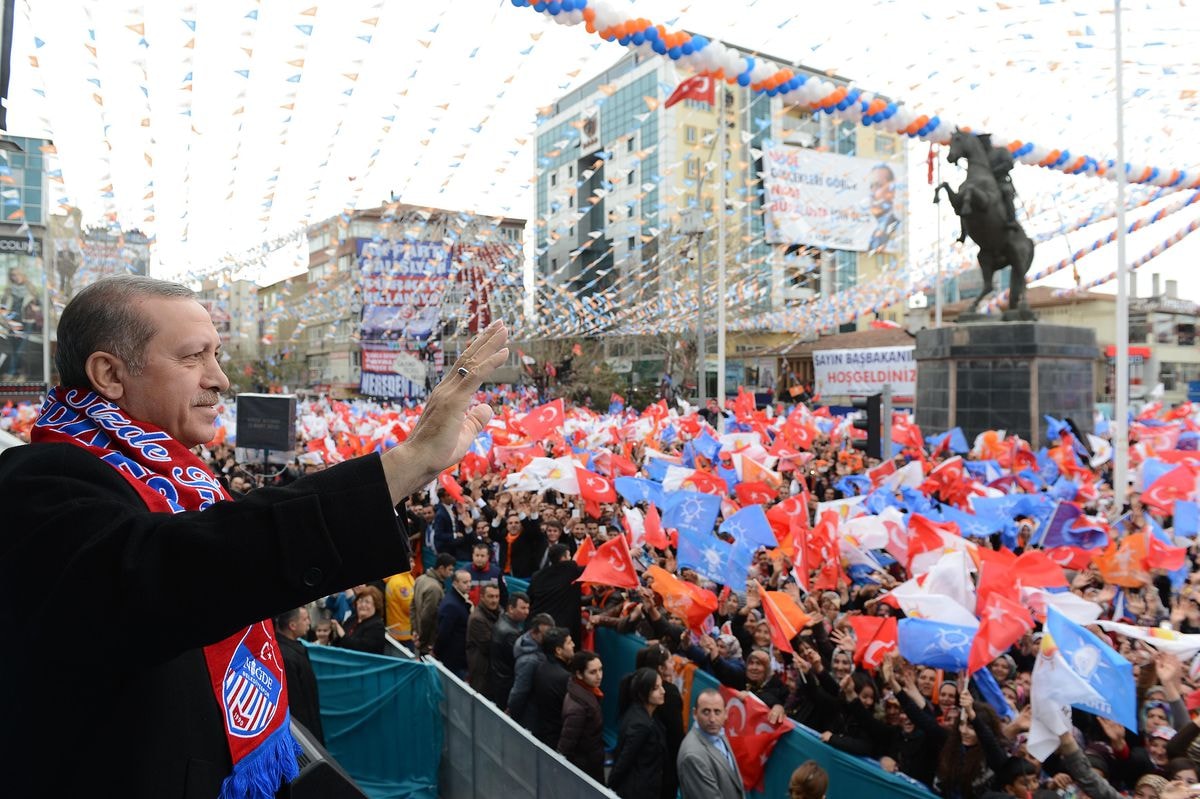Turkish Prime Minister's Uphill Battle
(Baonghean) - This March, Türkiye will hold local elections, an important stepping stone to the presidential election in August and the parliamentary election next year. Prime Minister Recep Tayyip Erdogan has announced his readiness to resign if his ruling Justice and Development Party fails in this local election. These statements show that Mr. Erdogan is clearly feeling the increasing pressure on himself as well as on the ruling party in the face of the wave of anger spreading in Turkey. And analysts say that the anti-Erdogan campaigns that have lasted since last year are just the beginning of this politician's difficult battle in his upcoming career.
 |
| Prime Minister Erdogan. |
Prime Minister Erdogan is facing a wave of protests calling for his resignation after a recording of a conversation between him and his son about a plan to hide large amounts of cash was circulated on the internet. The conversation took place amid police raids on several locations as part of a large-scale anti-corruption investigation targeting figures considered close allies of Prime Minister Erdogan. Pressure on Mr. Erdogan to resign increased after President Abdullah Gul signed into law on February 26, tightening government control over the judiciary, a document seen as a response to the corruption investigation.
According to new opinion polls, the popularity of Tayyip Erdogan's Justice and Development Party has plummeted to 36.5%, down from 50% in the 2011 parliamentary elections. Since coming to power 12 years ago, this is the biggest challenge that Erdogan has faced as local elections are approaching. The source of this decline in popularity is the massive corruption scandal that was exposed last year, which involved the children of high-ranking officials, the State Bank and even Prime Minister Erdogan's son. The recent revelation of the audio recording is said to be just the last straw, causing frustration and anger to flare up again on the streets of Türkiye because of the belief that Erdogan is avoiding investigation of corruption allegations. The latest scandals will weaken support for the Justice and Development Party in local elections and hurt Mr Erdogan's hopes of being directly elected president later this year.
There is no denying that Mr. Erdogan is the most prominent leader of Türkiye in decades. But now, challenges are coming to him on many fronts. Although Mr. Erdogan has withdrawn some important parts of the controversial judicial reform bills, a move considered as his "de-escalation" in response to protesters' demands, the wave of protests demanding his resignation in many major cities of Türkiye in recent days has not abated, negatively affecting the image and stability of this country. And as long as the crisis continues, voters will certainly not elect him as President, even though they have previously voted for the Justice and Development Party three times to keep him as Prime Minister since 2002. Political instability has given rise to another difficulty that Mr. Erdogan faces: the decline of the economy, with the local currency Lira falling to its lowest level in history and the Istanbul stock market continuing to decline.
However, at this point, it is too early to make a judgment about the "breakdown" in the political path of this 60-year-old Prime Minister, because an important reason is that there is currently no bright face emerging in Turkish politics. However, Mr. Erdogan's political future is more precarious and dangerous than ever, and how he will get out of this situation depends on his ability to "handle the crisis" in the face of the campaign that he calls "a plot to discredit the government".
Thuy Ngoc






